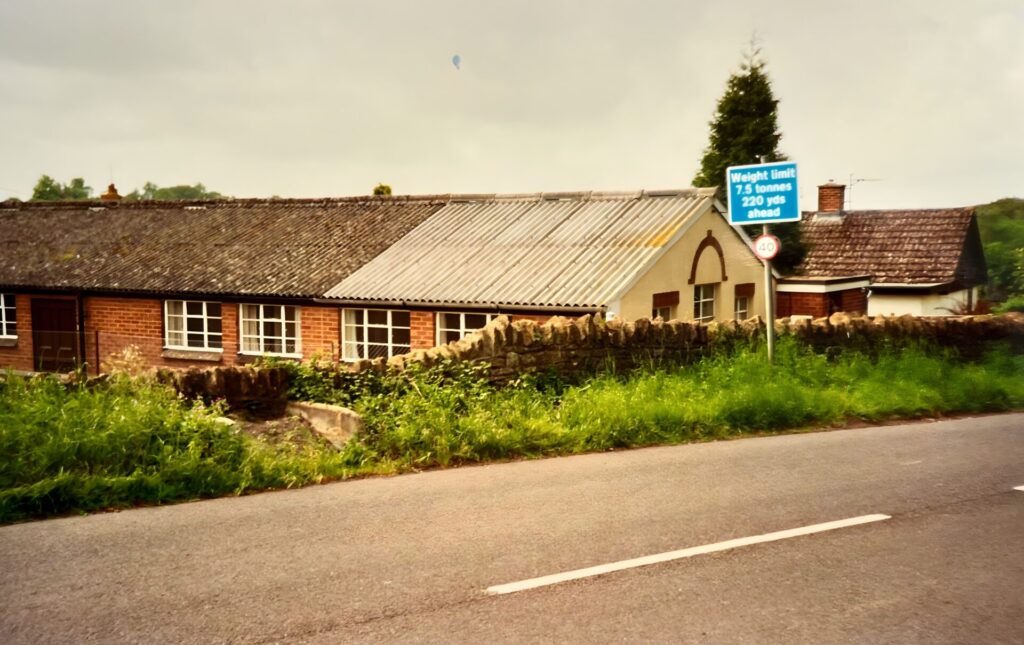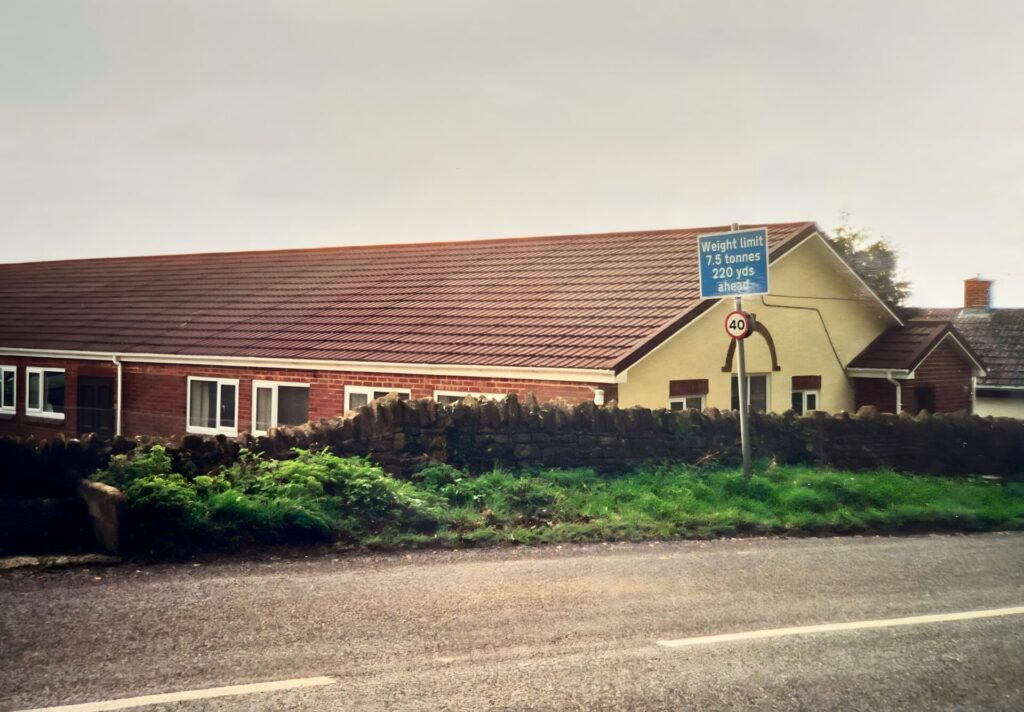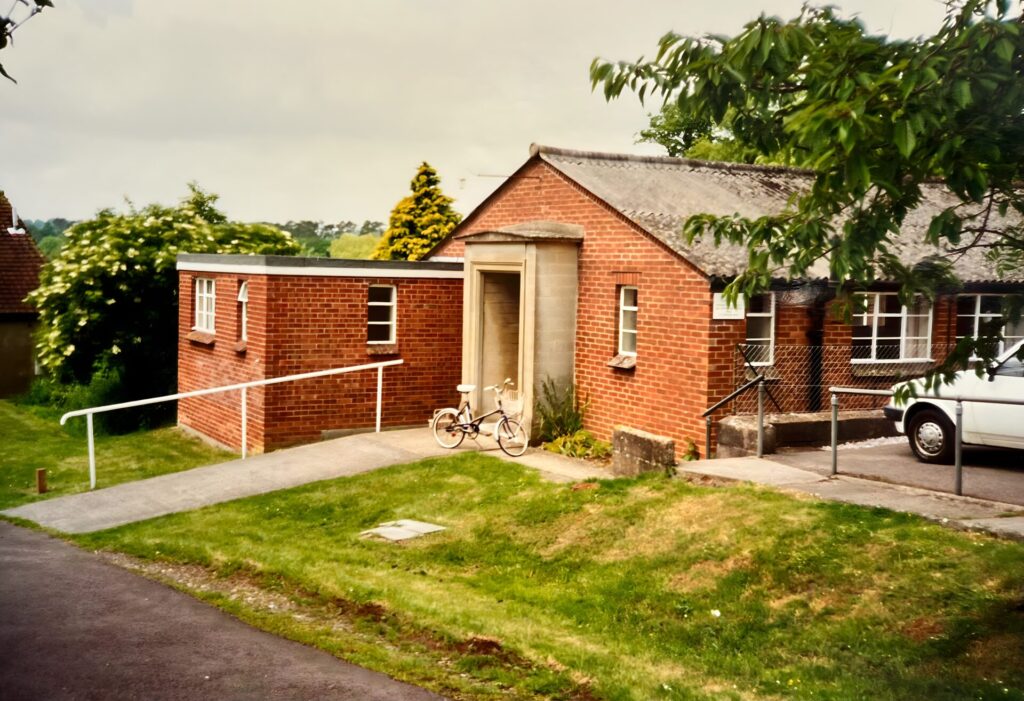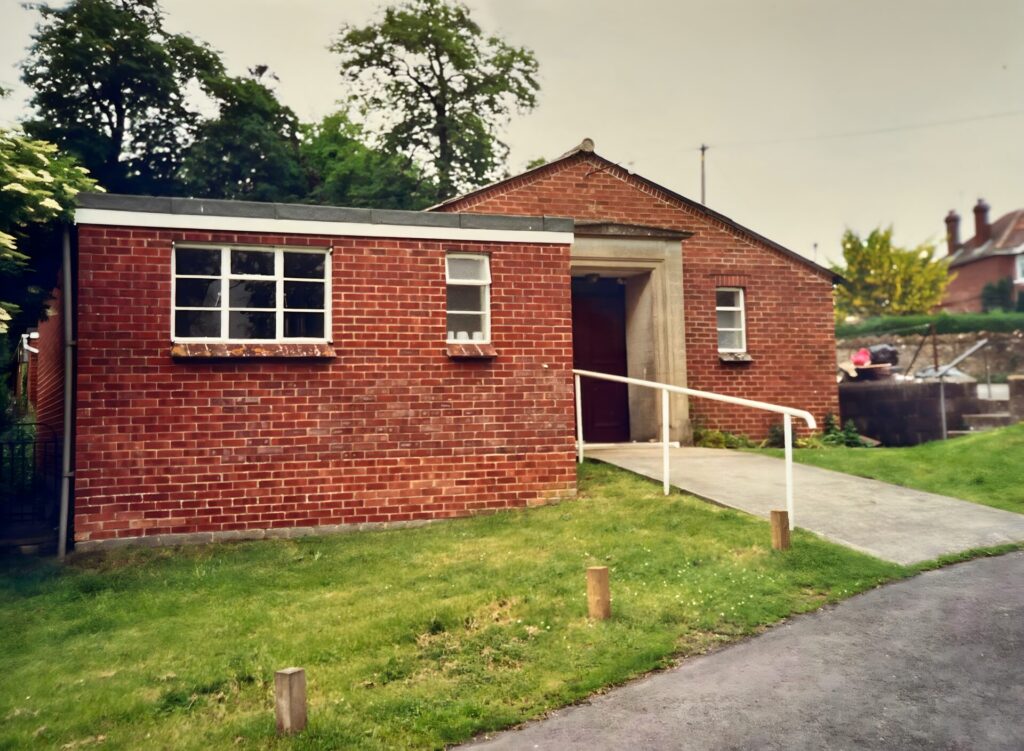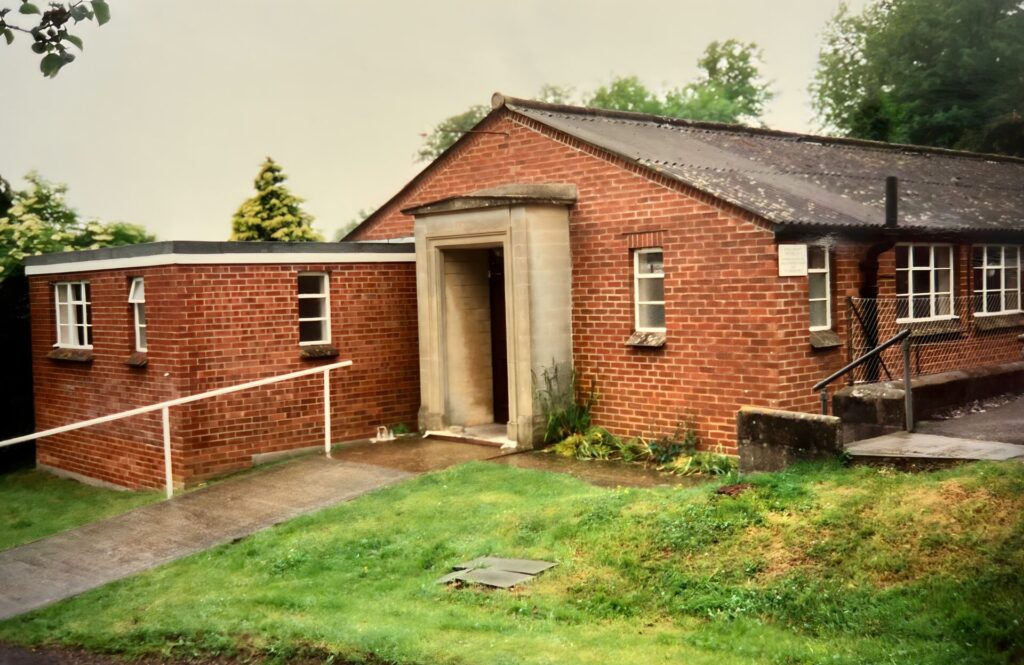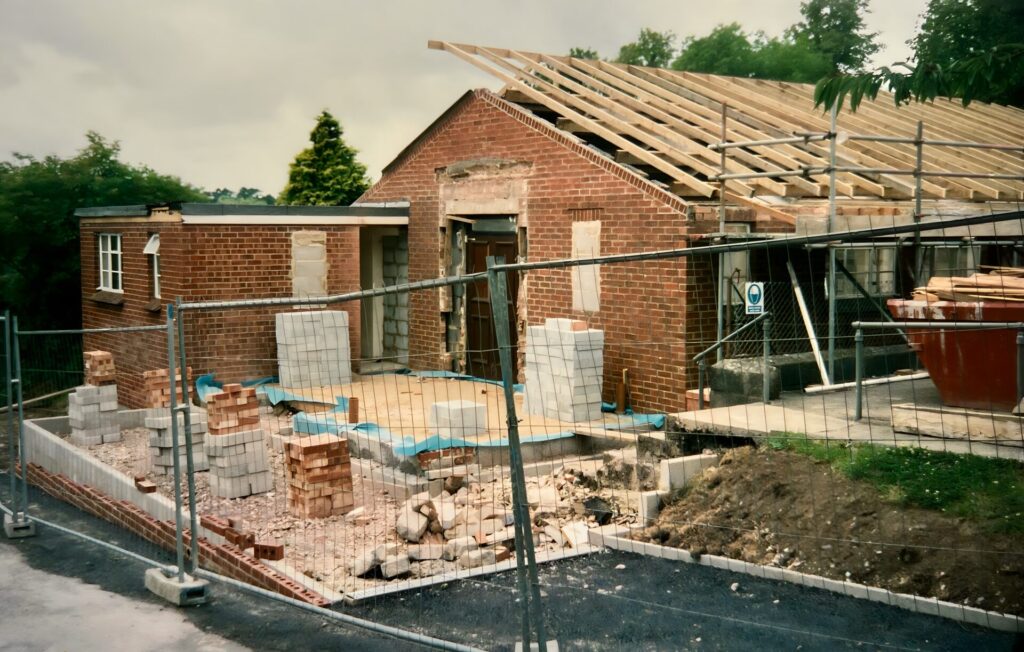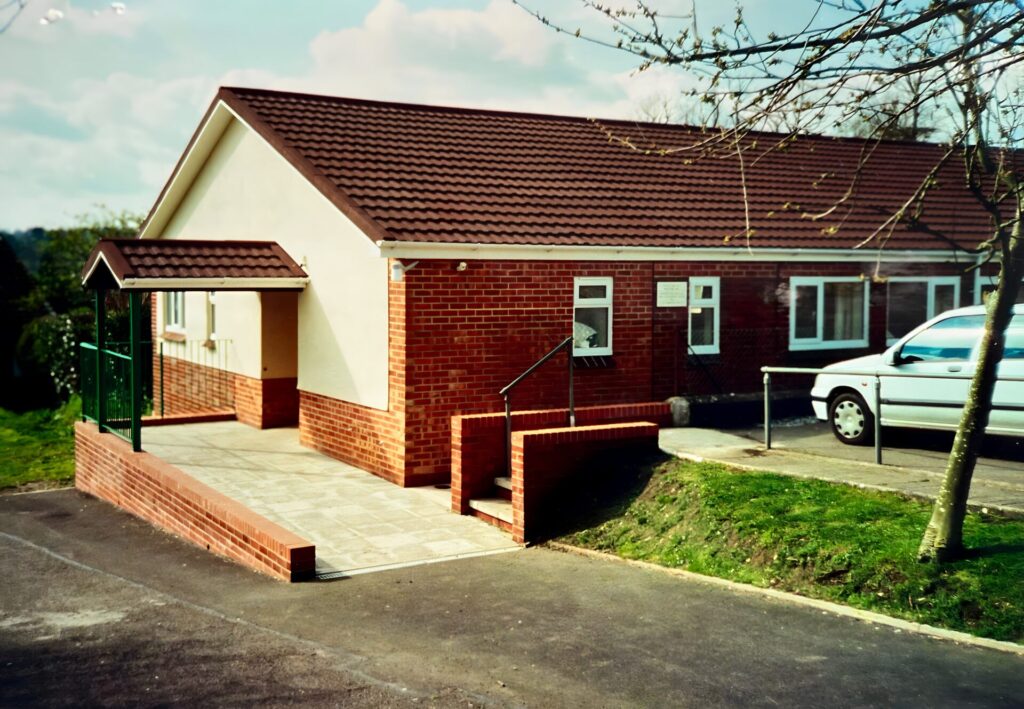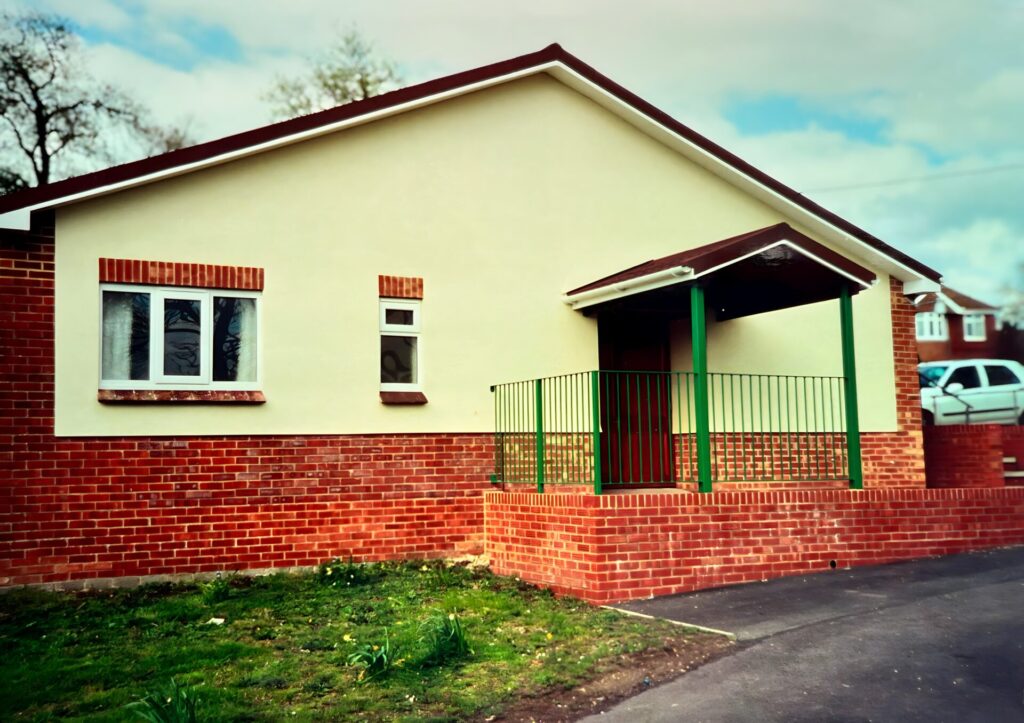History (text courtesy of Peter Harris)
The early years of the Hall are not clear but documents indicate that attempts to provide a village hall on the current site began during the 2nd World War.
At that time the Rode Branch of the British Legion was considering a memorial to commemorate the servicemen from the village who were dying in that war. The Branch Committee thought that it would be better that the memorial should not only honour the dead but be of practical use to the living, especially to those who served in the present war. The Rode Branch had no place of its own, where ex-servicemen could foregather, nor was there any hall in the village sufficiently commodious to meet the needs of the general public.
Consequently the Committee concluded that the provision of a Memorial Hall would best fulfill these aims, since such a hall would provide: –
(a) a fitting memorial to those who have given their lives for the freedom of their countrymen;
(b) a place of meeting for ex-servicemen;
(c) a headquarters for the local branch of the British Legion;
(d) a place where the general public could hold dances, concerts, etc.
They envisaged the hall would be known as the British Legion, Rode, Memorial Hall, it would be held in trust by the National Headquarters of the British Legion and the local branch would administer it.
Acting on the assumption that the public would support the scheme, the Committee approached Capt. W. S. Batten-Pooll of Rode Manor, who generously offered to provide some land on which the hall could be built. Estimates were also obtained for the purchase and erection of a hall to accommodate up to 250 persons, with a stage, dressing-rooms etc., for the installation therein of essential services, for the provision of the necessary furniture and fittings and the placing therein of a memorial tablet, inscribed with the names of the fallen. The total outlay was thought likely to be about £2,000. The Committee then launched an appeal:
“ to all those, who have at heart the well-being of the people of Rode and District, especially of those of them who served in this war, to support this scheme by sending as generous a donation as they can afford”.
At a later date, a newspaper reported that a meeting (probably open to all the village) was held in the Rode Hill schoolroom “to consider further the suggestion to build a Village Hall as a war memorial tribute”. The Chairman, Capt. Batten-Pooll, reported that the (Hall?) Committee had inspected various village halls. He said that they would have to raise at least £4,000 to build a hall on the lines proposed. It would require a wholehearted and united effort and would probably take 3 or 4 years to collect the money. After considerable discussion it was decided to ask the (Hall?) Committee to continue with their efforts to raise money for the Rode and District War Memorial Hall Fund. The same newspaper column contained a report of Rode British Legion giving the village children a victory tea, which suggests a date of 1945.
On 11th February 1946, a Post Office Savings Bank account was opened in the name of the Rode and District Memorial Hall Fund. A letter dated 8th April 1947 from Col. F. C. C. Ensor, the Hon. Secretary of the Rode and District Memorial Hall Committee, requested the Rode Branch of the British Legion to nominate its representative for the Committee. The letter clearly indicates that a trust deed, containing the terms and conditions of the Hall Management Committee, had been written and was in use (probably since 1946, see tenure of lease). The deed was not signed until 11th September 1952, possibly because, prior to that date, the Committee was still fund-raising and a signed deed was not needed until negotiations to procure a hall began. The deed legally established the Hall trust, its constitution and management rules. It also recorded that Capt. Batten-Pooll leased the land on which the Hall stands to Rode Parish Council (in trust), for a tenure of 99 years from 1946, at a rent of 5/- per annum.
In October1948 an outline drawing (no. 707/2) was produced by Mr. R. W. H. Vallis, an architect in Frome, in support of a proposal for a temporary building on the site. Later that year Mr. A.E. Perrett, a builder at Rudge, provided Mr. Vallis with an estimate for building a hall for the sum of £1,801. 8s. 5d.
Some time later the Committee approached the National Council for Social Service (a Government body) with a view of hiring a temporary building to be supplied by the NCSS. It is likely that these negotiations with the NCSS required the Committee to be legally established and hence the signing of the trust deed in 1952. Mr Vallis produced a detailed drawing (no. 707/6) of a temporary hall in May 1953. The drawing is clearly of the current hall in its original form.
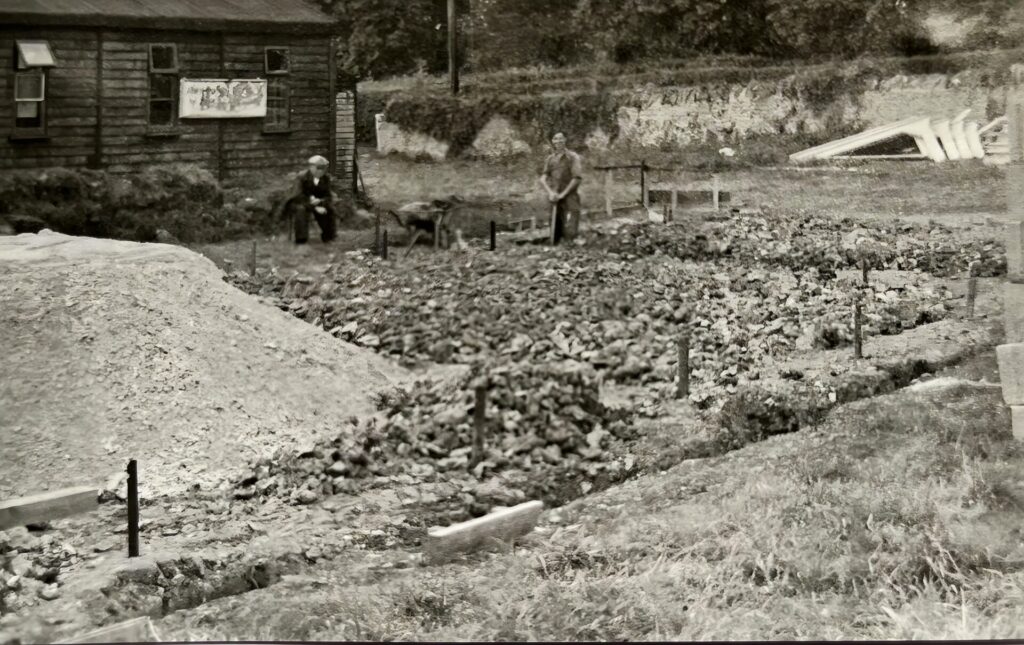
The hall was built by (Mr?) Woodman in the early part of 1955 (photos exist of the footings being dug – see above) and hiring from the NCSS commenced on 1st February 1955 at a cost of £13 per annum. The Committee signed the formal Agreement for the building and hiring of the hall with the NCSS on 30th March 1955, which required the hall to be insured for at least £3,000. Lord Hylton opened the hall in April 1955 and a picture of the opening ceremony hangs in the Committee Room (see below).
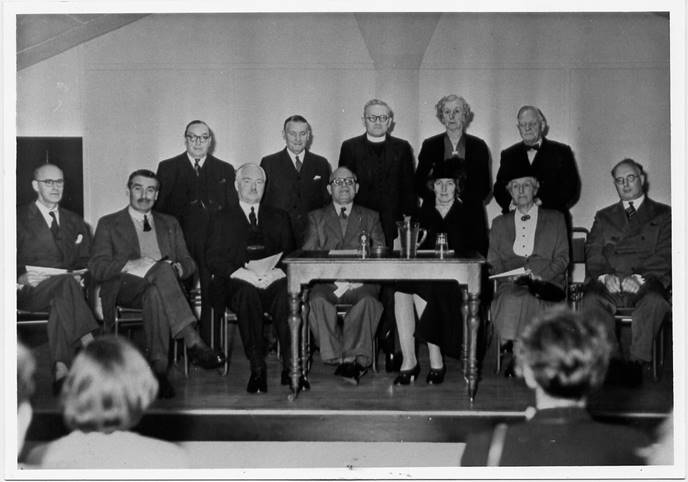
As soon as the hall was opened the Committee launched an appeal to raise money for furnishing and equipping the building, calling particularly on those who had promised, when the original appeal for a hall was made, to give donations when they could see the project was becoming a reality. The officers of the Committee at that time were S. G. Paradise (chairman), E. C. Porch (treasurer) and F. N. Stacey (secretary).
A brass memorial plaque was placed in the Hall and has the following inscription:
TO THE GLORIOUS MEMORY OF THE MEN WHO GAVE THEIR LIVES IN THE CAUSE OF FREEDOM
1914-1918 1939-1945
“WE WILL REMEMBER THEM”
A flower holder was fixed below the plaque and is kept full of flowers by the ladies of the village.
Capt. Batten Pooll died in 1953 and the freehold of the land on which the Hall was erected was acquired by Mr. F. C. Arnold of Ivy House. Mr. Arnold subsequently donated the freehold to the Parish Council (but not in trust), subject to the conditions in the lease, through a Deed of Gift dated 21 July 1962. On 27th April 1964 the Management Committee bought the Hall from the NCSS for £450. The outcome of these transactions appears to be that the Trust owns the Hall and has a lease on the land, which the Parish Council owns.
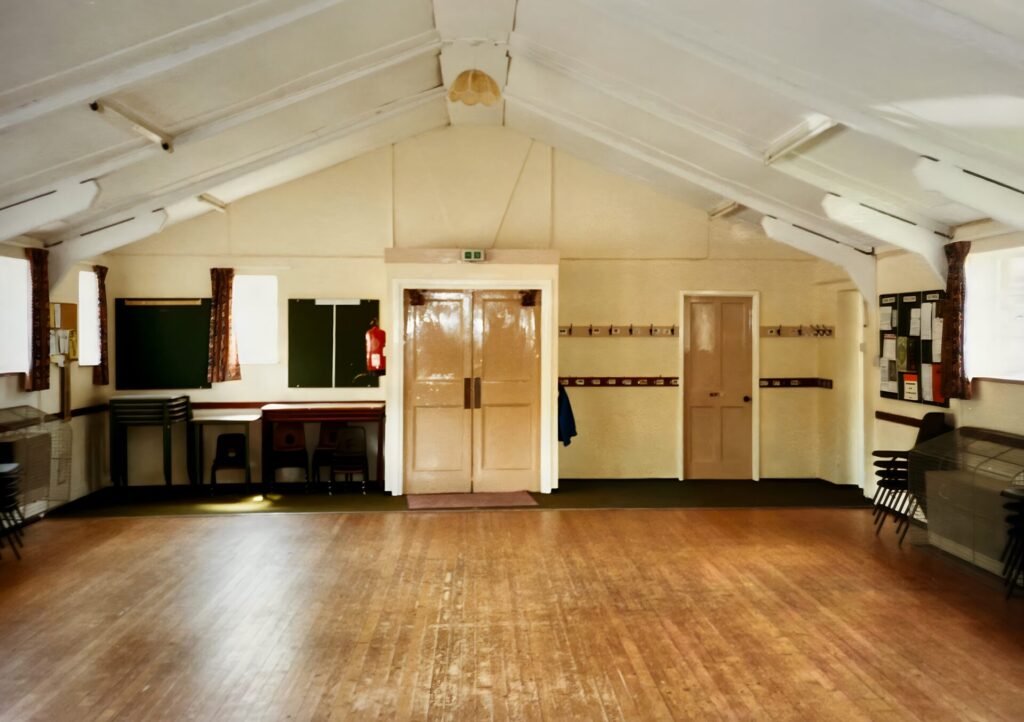
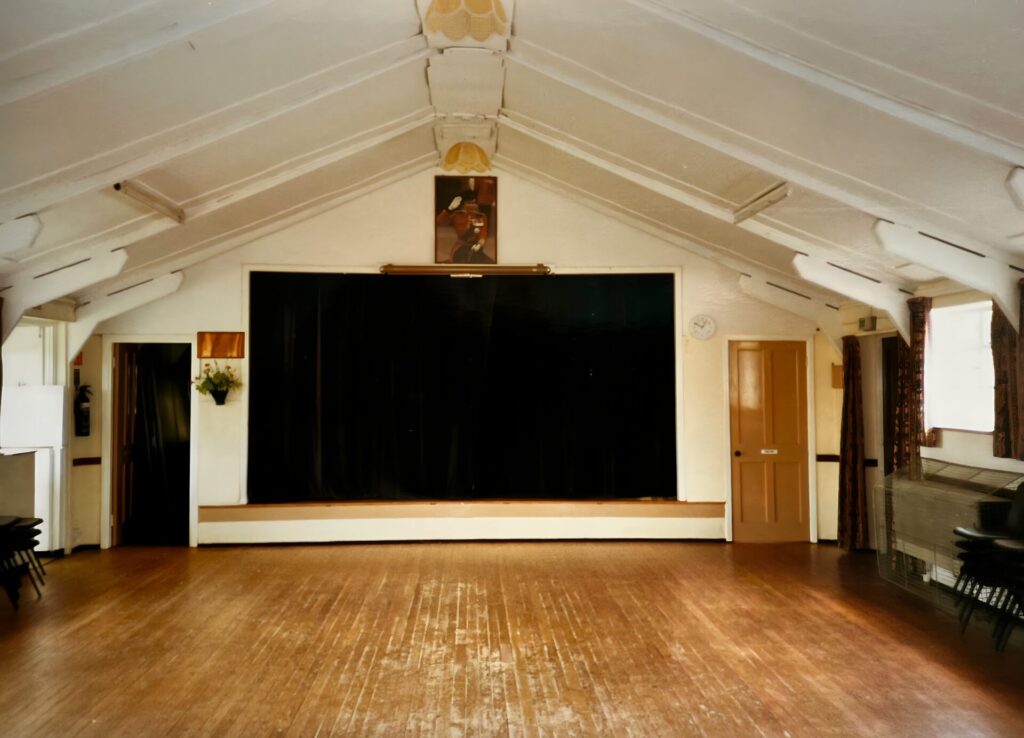
The Hall has been extended on four occasions. The kitchen area was added in 1976; the area at the southwest corner in 1979, now being used as two small storerooms and the gents’ toilets; and the committee room and rear toilets in 1994. In 1999, a major refurbishment was undertaken including the fitting of a new roof, ceiling, floor and doubled glazed windows. In addition a new entrance hall, the ladies toilets and a side extension to the main hall were added and the fixed stage replaced with a more flexible system of portable units. This latest work was funded by a £30,000 bequest from the estate of Miss Hilda May Woolley of Langham Place and a grant of £60,000 from the Heritage Lottery Fund.
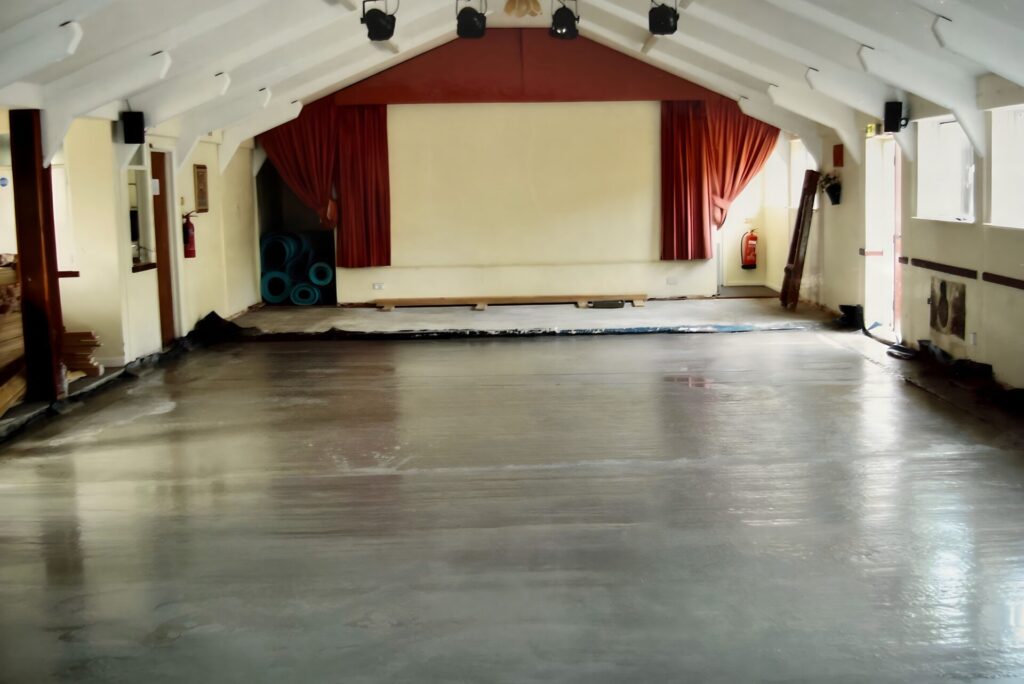
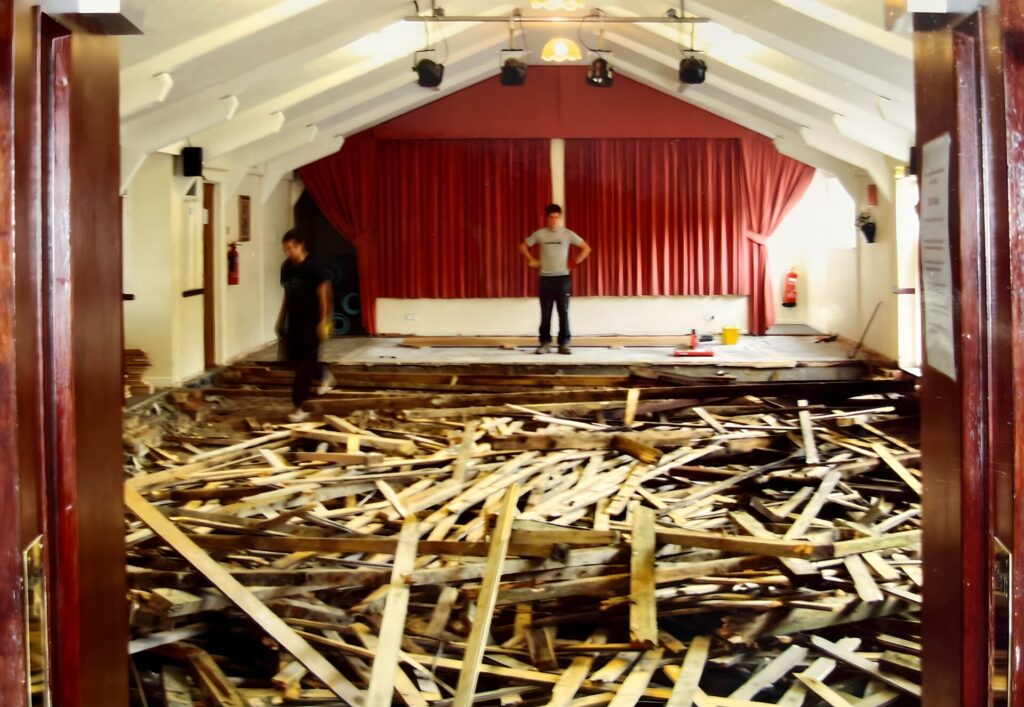
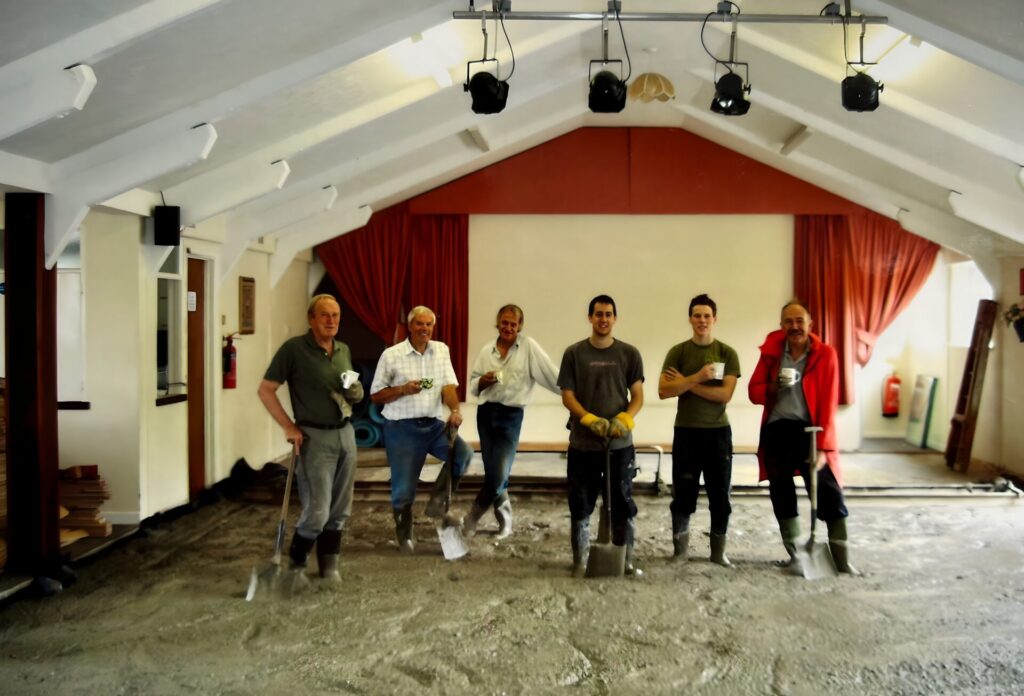
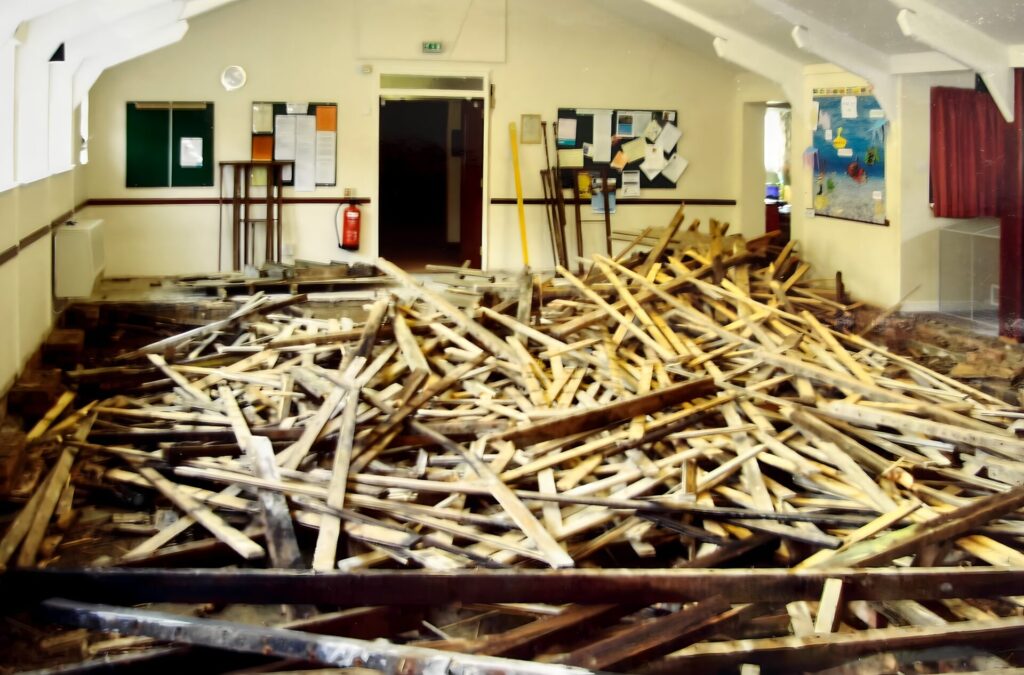
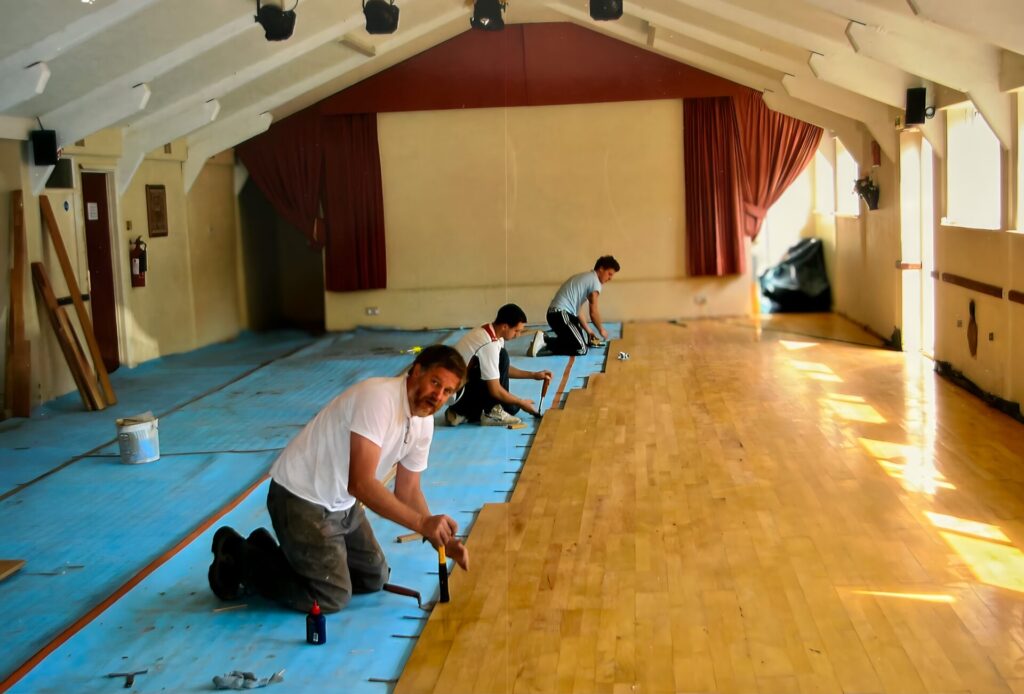
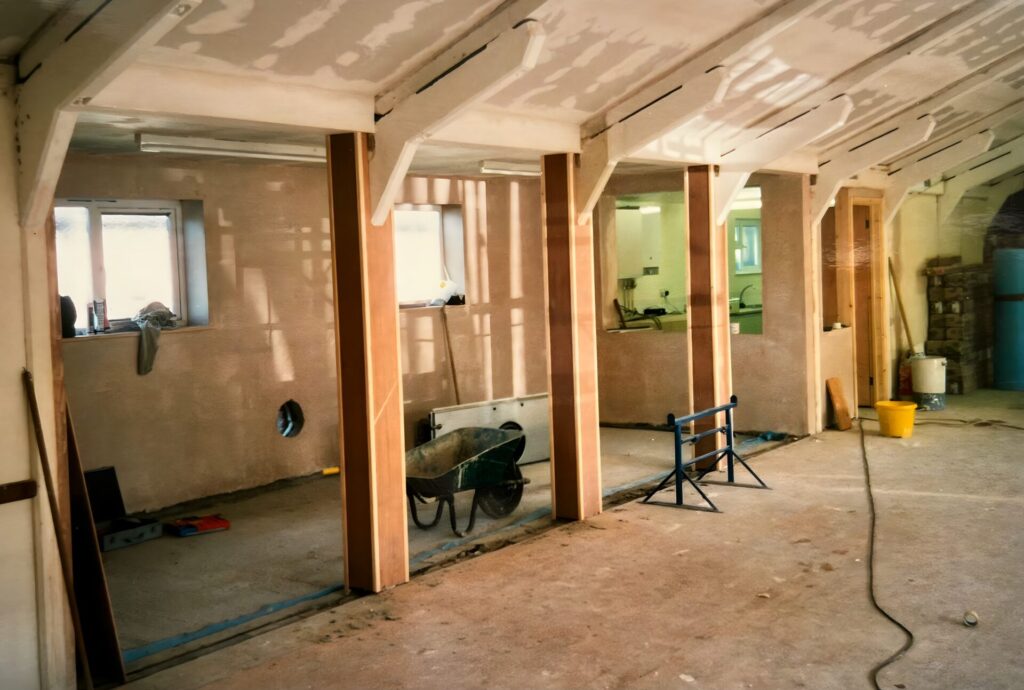
May Woolley, whose older brother Bert served in the First World War, provided and arranged the flowers for the memorial plaque for over 32 years from the time the Hall was opened.
The Hall has always been well cared for by the village and in 1990 won the competition for the best run village hall in Somerset.
